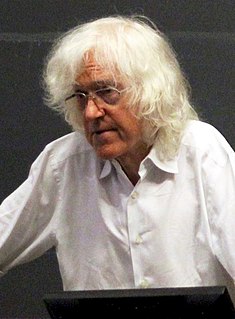A Quote by G. E. M. Anscombe
The denial of any distinction between foreseen and intended consequences, as far as responsibility is concerned, was not made by Sidgwick in developing any one 'method of ethics'; he made this important move on behalf of everybody and just on its own account; and I think it plausible to suggest that this move on the part of Sidgwick explains the difference between old-fashioned Utilitarianism and the consequentialism, as I name it, which marks him and every English academic moral philosopher since him.
Quote Topics
Academic
Account
Any
As Far As
Behalf
Between
Concerned
Consequences
Consequentialism
Denial
Developing
Difference
Distinction
English
Ethics
Every
Everybody
Explains
Far
Foreseen
Him
Important
Intended
Just
Made
Marks
Method
Moral
Move
Move On
Name
Old
Old-Fashioned
Own
Part
Philosopher
Plausible
Responsibility
Since
Suggest
Think
Utilitarianism
Which
Related Quotes
Ethics occupies a central place in philosophy because it is concerned with sin, with the origin of good and evil and with moral valuations. And since these problems have a universal significance, the sphere of ethics is wider than is generally supposed. It deals with meaning and value and its province is the world in which the distinction between good and evil is drawn, evaluations are made and meaning is sought.
The Consequentialist trinity is typically regarded in this way: Bentham is crude, Mill's writings are full of howlers and inconsistencies, and Sidgwick was too smart to fully embrace Consequentialism. All of these great traditions in moral philosophy express strands of our moral consciousness and they should all be treated as research programs rather than as fully determinate views that can be leveled by a counterexample or by a clever argument.
To me, a philosopher who says that the distinction between human and nonhuman depends on whether you have a white or a black skin, and a philosopher who says that the distinction between human and nonhuman depends on whether or not you know the difference between a subject and a predicate, are more alike than they are unlike.
Beware of manufacturing a God of your own: a God who is all mercy, but not just; a God who is all love, but not holy; a God who as a heaven for every body, but a hell for none; a God who can allow good and bad to be side by side in time, but will make no distinction between good and broad in eternity. Such a God is an idol of your own, as truly an idol as any snake or crocodile in an Egyptian temple. The hands of your own fancy and sentimentality have made him. He is not the God of the Bible, and beside the God of the Bible there is no God at all.
An important distinction can be made between religion and spirituality. Religion [is] concerned with faith in the claims to salvation of one faith tradition... Spirituality is concerned with qualities of the human spirit, love and compassion, patience, tolerance, forgiveness, contentment, a sense of responsibility, a sense of harmony, that bring happiness both to self.
It is hard to think of any work of art of which one can say 'this saved the life of one Jew, one Vietnamese, one Cambodian'. Specific books, perhaps; but as far as one can tell, no paintings or sculptures. The difference between us and the artists of the 1920's is that they they thought such a work of art could be made. Perhaps it was a certain naivete that made them think so. But it is certainly our loss that we cannot.
Despite the apparent absoluteness of the First Amendment, there are any number of ways of getting around it, ways that are known to any student of law. In general, the strategy is to manipulate the distinction between speech and action which is at bottom a distinction between inconsequential and consequential behavior.
The close-up has no equivalent in a narrative fashioned of words. Literature is totally lacking in any working method to enable it to isolate a single vastly enlarged detail in which one face comes forward to underline a state of mind or stress the importance of a single detail in comparison with the rest. As a narrative device, the ability to vary the distance between the camera and the object may be a small thing indeed, but it makes for a notable difference between cinema and oral or written narrative, in which the distance between language and image is always the same.







































